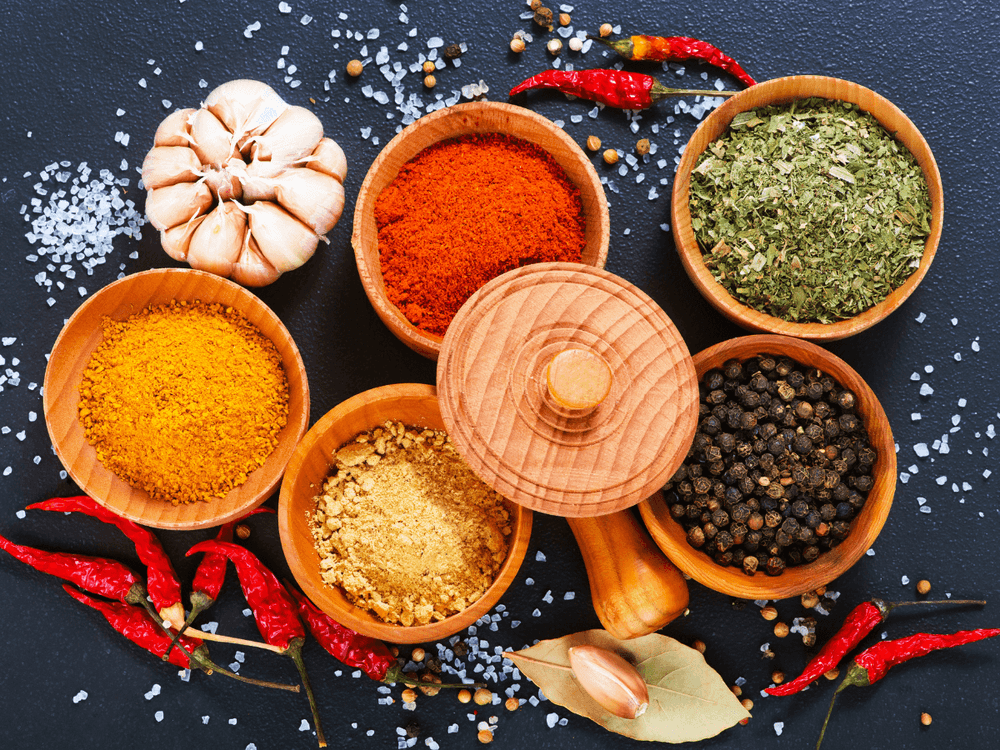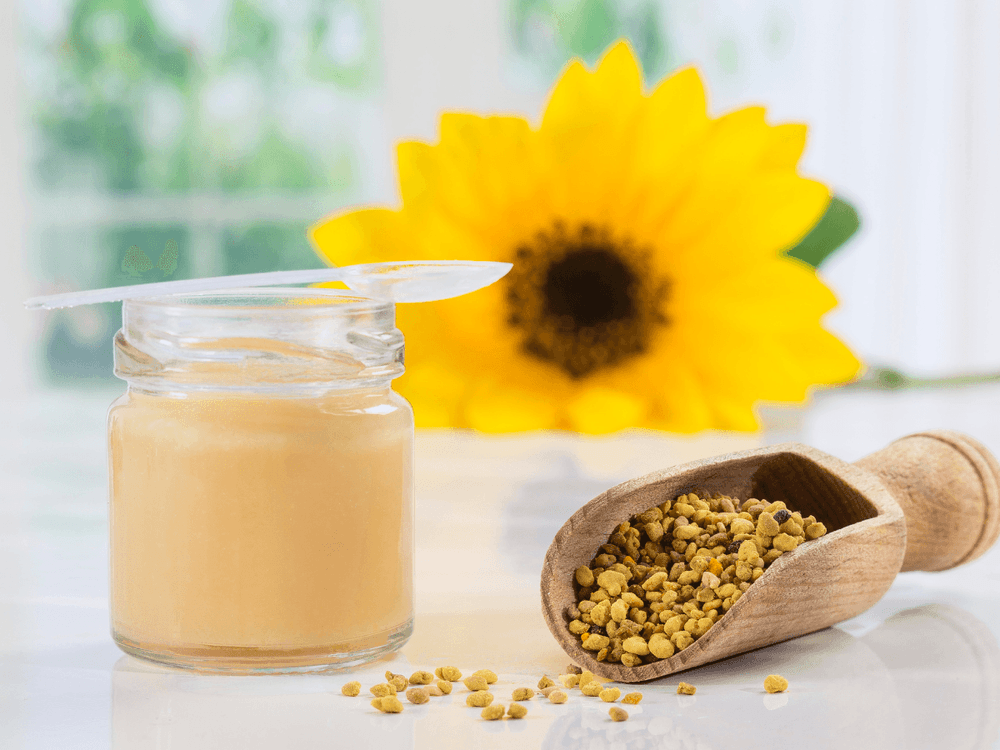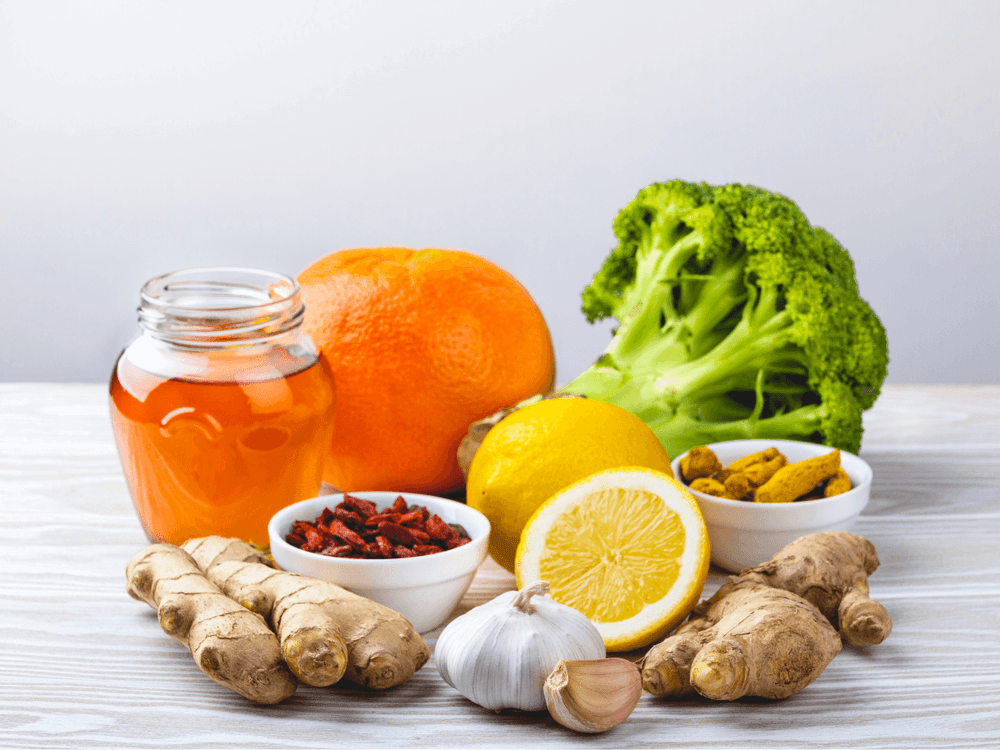Notre corps possède un bouclier naturel pour faire face aux agressions extérieures. Il s’agit de notre système immunitaire. Ce système complexe est composé de divers éléments interdépendants (des tissus, des organes, des cellules, des protéines...), et son bon fonctionnement global dépend de différents facteurs, comme notre mode de vie et notre alimentation. Il est possible (et facile !) de renforcer, au quotidien, nos défenses naturelles pour une bonne immunité.
Dans cet article, vous trouverez différents actifs naturels efficaces pour prendre soin et soutenir votre système immunitaire.
Les plantes qui renforcent le système immunitaire
La nature regorge de plantes aux bienfaits reconnus pour soutenir nos défenses naturelles.

L’ail (Allium sativum) : considéré comme un aliment fortifiant depuis des siècles, l’ail possède de puissantes propriétés antibactériennes et antiseptiques grâce à ses composés soufrés comme l’allicine.
L’astragale (Astragalus membranaceus) : grâce à ses composés antioxydants comme le cycloastragénol, cette plante adaptogène possède également des vertus immunomodulantes qui la rendent intéressante pour prévenir les maux des voies respiratoires, et renforcer le système immunitaire.
Le curcuma (Curcuma longa) : riche en curcumine, une molécule aux propriétés antioxydantes et anti-inflammatoires, il renforce les défenses naturelles en luttant contre les méfaits des radicaux libres, et en stimulant la réponse immunitaire.
L’échinacée pourpre (Echinacea purpurea) : elle renforcerait notre système immunitaire grâce aux propriétés immunostimulantes des molécules actives de ses racines et parties aériennes (alkylamides et polysaccharides).
L’éleuthérocoque (Eleutherococcus senticosus) : par ses propriétés adaptogènes, cette plante renforce notre organisme face au stress. Les études scientifiques montrent que les extraits d’éleuthérocoque stimulent les défenses naturelles et interagissent avec les cellules de l’immunité.
Le gingembre (Zingiber officinale) : la racine de gingembre est source de différentes molécules d’intérêt comme le gingérol, le bêta-carotène (vitamine A) et la capsaïcine, lui donnant des propriétés anti-inflammatoires, antibactériennes et antioxydantes.
Le thym (Thymus vulgaris) : grâce à ses propriétés antiseptiques et assainissantes, il est particulièrement indiqué pour le soin de la sphère ORL. Ses propriétés traditionnelles sont d’ailleurs recommandées par les agences de santé européennes contre les affections ORL (toux, rhume, bronchites, laryngites).
Les trésors de la ruche, trésors pour notre immunité
Les vertus des produits de la ruche sont largement reconnues. Depuis l’Antiquité, ils sont utilisés par l’homme pour renforcer son organisme.

La propolis : au sein de la ruche, la propolis est produite et utilisée par les abeilles pour renforcer les parois et lutter contre l’invasion d’indésirables (microbes, champignons). Qu’elle soit verte, rouge ou brune selon l’espèce d’arbre dont elle est issue, elle doit ses vertus sur l’immunité à sa molécule d’intérêt, l’artépilline-C, aux propriétés antibactériennes et anti- inflammatoires reconnues.
La gelée royale : il s’agit de la nourriture exclusive de la reine et des larves de l’essaim produite par les abeilles ouvrières. Sa composition nutritionnelle spécifique d’exception avec son acide gras 10-HDA (acide trans-10-hydroxy-2-décénoïque), et ses protéines MRJP (Major Royal Jelly Proteins) en font un allié de choix pour soutenir le système immunitaire.
Le miel : fabriqué par les abeilles ouvrières à partir du nectar des fleurs, le miel sert de nourriture à l’ensemble de la ruche. S’il est principalement composé d’eau et de sucres, de protéines et de minéraux, il possède d’autres nutriments bienfaisants, comme des enzymes antibactériennes, des flavonoïdes antioxydants et anti-inflammatoires, ou encore des composés antiseptiques (inhibines et défensines).
Les bons aliments pour soutenir notre immunité
Le bon fonctionnement de notre système immunitaire est lié à des apports adéquats en certains nutriments comme des vitamines et des oligo-éléments. Il est important de soigner notre alimentation pour qu’elle fournisse à notre organisme ces nutriments essentiels.

Les aliments sources de vitamine A :
La vitamine A contribue au fonctionnement normal du système immunitaire. La vitamine A est principalement obtenue dans des aliments sources de caroténoïdes. Pour des apports en vitamine A : les abats (de dinde, de poulet), le foie de bœuf, la carotte, la patate douce, les épinards, le chou frisé, les courges, le hareng, le melon, le poivron rouge...
Les aliments sources de vitamines B9 et B12 :
Les vitamines B9 et B12 contribuent au fonctionnement normal du système immunitaire. Pour des apports en B9 : le foie (de volaille, de veau, de canard, de dinde, de porc), la levure alimentaire, les herbes séchées (menthe, basilic, herbes de Provence, marjolaine, sauge, thym...), les farines de soja et de pois chiche, les fèves, les haricot mungos et rouges, le lupin, les lentilles... Pour des apports en B12 : la gelée royale, les abats (rognons, foie de porc, de veau, d’agneau...), les œufs de saumon, le poulpe, les anchois, le maquereau, le hareng, la sardine, les crevettes, les moules...
Les aliments sources de vitamine C :
La vitamine C contribue à maintenir le fonctionnement normal du système immunitaire. Pour des apports en vitamine C : l’acérola, la goyave, le cassis, le persil, le thym, le piment, le raifort, le chou frisé, les poivrons (rouge, jaune et vert), le citron, le brocoli...
Les aliments sources de zinc :
Le zinc contribue à maintenir le fonctionnement normal du système immunitaire. Pour des apports en zinc : les huîtres, le germe et le son de blé, le crabe, la viande (de bœuf, de veau), le sésame, le pavot, la levure de boulanger...
Les aliments sources de sélénium :
Le sélénium contribue au fonctionnement normal du système immunitaire. Pour des apports en sélénium : les poissons (la lotte, le thon, le mulet, le cabillaud, l’espadon, la sole, le maquereau), les rognons (de porc, de veau, de bœuf), le foie (de morue, de volaille), le jaune d’œuf...
Les aliments sources de fer :
Le fer contribue au fonctionnement normal du système immunitaire. Pour des apports en fer : les viandes rouges, les fruits de mer (huîtres, palourdes, moules), les légumineuses (lentilles, haricots blancs, graines de soja), le tofu, les herbes séchées (thym, basilic, menthe, marjolaine, herbes de Provence, laurier, persil, sarriette, origan...), les épices (cumin, curcuma) le cacao, le wakamé...
Les sources de probiotiques :
Avec près de 70% de nos cellules immunitaires produites par les bactéries de notre microbiote intestinal, de nombreuses études se sont penchées sur les bienfaits des probiotiques sur notre système immunitaire. Au global, les probiotiques permettraient notamment la production de molécules antimicrobiennes, la diminution de la perméabilité intestinale, ou encore préviendraient des infections virales. Il est donc intéressant de consommer des aliments riches en probiotiques comme les yaourts, les fromages à pâte persillée (roquefort, bleu...), ou encore des aliments fermentés comme la choucroute, le kéfir, le kombucha, le tempeh, et le miso.
Pour prendre soin de son microbiote intestinal, des apports suffisants en fibres sont également recommandés. En effet, les fibres favorisent l’équilibre de la flore en « nourrissant » les bactéries. On trouve des sources de fibres importantes dans les fruits (framboises, cassis, mûres) et légumes (artichaut, topinambour, panais, chou, épinards, frais), les fruits secs (pruneaux, abricots, dattes), les céréales complètes, mais aussi les légumineuses (lentilles, fèves, haricots) ou encore le chocolat noir 70%.
Il existe ainsi de nombreuses solutions naturelles pour soutenir notre système immunitaire
agissant avec des bienfaits différents et complémentaires. Outre notre alimentation, d’autres
facteurs interviennent dans l’efficacité de nos défenses immunitaires. Une activité physique
régulière, un sommeil suffisant ou encore la bonne gestion d’un stress souvent chronique
contribuent également à nous rendre plus résistants aux attaques hivernales.


